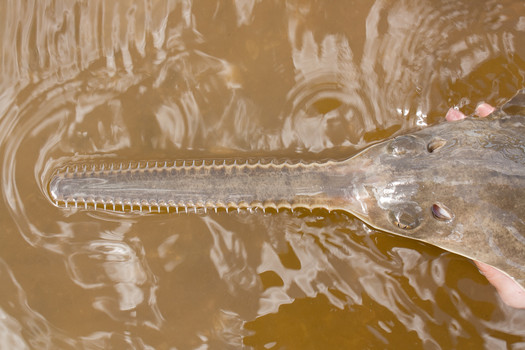One of the few examples of parthenogenesis, reproduction without sex, in vertebrates has been reported by Demian Chapman of Stony Brook University in New York and his colleagues from the Priztker Laboratory at the Field Museum of Chicago and Florida Fish and Wildlife Conservation Commission. The endangered smalltooth sawfish (Pristis pectinata) has been shown genetically to have been reproducing without sex. The discovery was reported in the edition of the journal Current Biology.
Parthenogenesis is extremely rare in vertebrate animals. Most instances of parthenogenesis in vertebrates have been reported in zoos. This is the first known example of parthenogenesis in a vertebrate in the wild.
The smalltooth sawfish are found in the Caloosahatchee River and the Peace River in Florida. The researchers found that three percent of the smalltooth sawfish show genetic evidence of having been born without the benefit of sex. Parthenogenesis is thought to occur in vertebrates when an unfertilized egg absorbs a sister cell that is genetically identical. The lack of genetic diversity is normally expected to produce offspring that die.
The majority of smalltooth sawfish produced by parthenogenesis have lived. The researchers tagged the seven fish that were the result of “virgin birth” and released them back into the wild. The fish have become endangered from excessive fishing by man and natural predation. It is unknown as of yet whether the fish produced by parthenogenesis will be able to reproduce sexually or otherwise.
The development of parthenogenesis in vertebrates is thought to be a method of survival. When the population decreases to a certain level the females become more prone to give birth though parthenogenesis. The fish have a natural instinct to survive and birth without sex is an option although it is rare in vertebrates.















